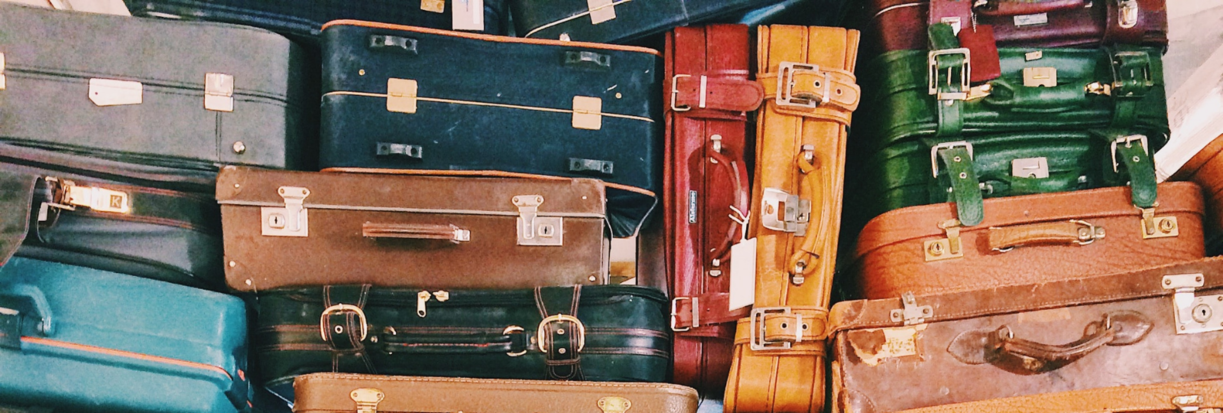
Pre-Vacation Energy Tips to Save on Bills
It would be fair to say that the pandemic has impacted traditional vacation plans. But there are still plenty of ways to enjoy a vacation with your family whether that be renting a cozy, remote cabin on the water, or a regional road trip – you might be surprised to find out what your area has to offer!
In any sense, there are plenty of pandemic friendly vacation options for you and your family. But before leaving your home for that much-needed getaway, there are some energy efficiency tips to consider.
Unplug
When your home is vacant, many appliances are still using electricity. Often called ‘energy vampires’ or ‘phantom power’, these electronic items will continue to cost you money even when not in use.
Before you leave for your vacation adventure, you should walk around your home and unplug every unnecessary appliance and electronic device.
In your kitchen: the coffee pot, your kettle, the toaster, microwaves, electric can openers – think “quick and easy to unplug appliances”!
Do not forget about those devices in your bathroom: hair appliances, that electric toothbrush or razor.
And of course, we all have other electronics and appliances scattered around the house: computers, cell phone chargers, laptop chargers, Google Home and Alexa, lamps, the router, televisions, your electric piano, sound systems, fans, and especially video game consoles require unplugging.
Video game consoles like Xbox, PS4 and Wii U will use electricity even when not in use. Do not leave your console in standby mode. Consoles spend most of their time in connected standby mode. This soaks up more energy over the course of the year than the console uses gaming!
Unplugging also eliminates a possible fire hazard if there is a power surge while no one is home.
Un-tap
Before leaving your home and unwinding on vacation, make sure to check for dripping faucets. Do not forget to make sure your taps are turned off – completely! Most of us have been guilty once, or twice of tightening the tap a little shy of just right.
Clean Up
It is always better to come home after vacation and relax just a little longer in a clean and uncluttered house.
What you do not want to come home to is rotten clothing in the dryer. Never leave wet clothing in your dryer – even when you are not going on vacation. Wet clothing spawns mildew and molds quickly. The clothes will require another washing and thorough drying cycle to get clean again, using an excess of energy.
Emptying the fridge and freezer is another great energy efficiency tip and pre-vacation task. Not only will you come home to a clean, fresh-smelling kitchen but decluttering a fridge helps with air circulation. This means a more efficient fridge – which means less energy consumption!
And if you completely clear food out of your fridge, it gives you the opportunity to unplug it or at least turn up the temperature high enough to save some electrical energy but low enough to ensure those condiments are still edible upon your return.
Lights Out
Of course, we can’t forget about the lights. Make sure you have all lights are turned off in the house. Some people will leave lights on at home while they’re on vacation to make it appear that somebody is home.
Don’t do this – not only will it increase your energy bill but it might look suspicious when your lights are shining bright even during the night.
Instead, consider purchasing a light switch timer which can be programmed to turn on and off according to whatever schedule you decide.
Making all these little changes can go a long way when it comes to making sure your home is optimized for saving money on energy bills while you’re on vacation. Depending on the season, there are even more pre-vacation energy saving tips you may want to consider.
Seasonal Energy Saving Tips
Winter Pre-Vacation Tips
While some North American regions remain warm all-year-round, for those in more northern parts of North America seasonal changes can also impact how we are spending our vacations and how we should be prepping our homes before we leave. Winter is an incredible time to go on vacation; there are beautiful, winter landscapes and plenty of snow activities to keep you entertained. But before you run out for that winter wonderland getaway, consider these tips to save money and conserve energy at home.
Furnace
There are many types of heating systems for a house or unit. But the most used across North America is the furnace.
For extremely cold regions, we wouldn’t recommend completely turning off the heat – this may result in frozen pipes. Instead, lower your heat. A good recommendation would be to adjust your thermostat to 55°F or 13°C.
Changing or replacing your furnace filters in the winter can also help with energy efficiency. Vacation or not, a dirty furnace filter will block the flow of heat resulting in heftier utility bills.
Did you know to save waste and money in the long-run, you can buy reusable furnace filters?
You can also close doors and heating vents in unused rooms. Again, to avoid freezing your plumbing system do not do this in rooms with water pipes in the walls like your bathroom or kitchen.
To the Window!
Cover your windows – keeping your blinds closed will help keep your space warm in the winter. In case you’re wondering, blinds are more effective compared to fabric draperies when it comes to insulating.
Water Tank
Dropping the temperature on your hot water tank can help reduce costs by 3-5%. A good recommendation would be to set the temperature to 120°F or 49°C.
Summer Pre-Vacation Tips
Summer is a great time to go on vacation. Across North America, the flowers are blooming, the sun is shining, and the beaches are ready to enjoy. Before you run out the door, consider these tips to save money and conserve energy at home, giving you peace of mind.
Air Conditioning
It is an awful feeling coming home and realizing that the inside of your home is hotter than it is outside. If you are planning a weekend getaway, shutting off the A/C is a smart way to reduce your cooling energy costs to zero. If you’ll be away for a week or longer, it is wise to leave the A/C on but increase the temperature setting to about 85 degrees Fahrenheit or 28-29 degrees Celsius. Each single-degree temperature adjustment can curb the air conditioner’s energy consumption by two to three percent and will help save you money. By maintaining a maximum temperature of 85 degrees, you’ll also prevent an excessive buildup of heat and humidity that can damage electronics, computers, furniture, and structural components such as drywall, wood floors, and trim. If you don’t already have a programmable thermostat, now’s the time to have one installed so you can put your thermostat in vacation mode to maintain a consistent temperature while you’re away. To ensure your house is not a sauna when you come home, set the temperature back to normal for the day you return to the house is comfortable and cool when you arrive home. Smart thermostats like Nest are a great investment because there is a downloadable Nest app allowing you to keep an eye on the temperature and adjust it.
Windows
Cover your windows – keeping your blinds closed will help keep your space cooler in the summer.
Batteries
Another tip is to remove batteries from alarm clocks, remotes, controllers, and radios (if you still own a traditional radio that is). Over time batteries will corrode and in the summer months, the heat and humidity will cause batteries to deteriorate faster. Store batteries in their original packaging if possible.
Suite metering promotes energy conservation and enables each resident to pay only for the electricity they use. Be sure to keep these points and more energy efficiency tips in mind to help you save up toward your next vacation!
For additional energy tips and promotions sign up for our newsletter or connect with us on social media.
If you found this article helpful, feel free to share it with your friends and family so they can start saving on their energy bills too!
This article was written in 2018 and update in 2020

